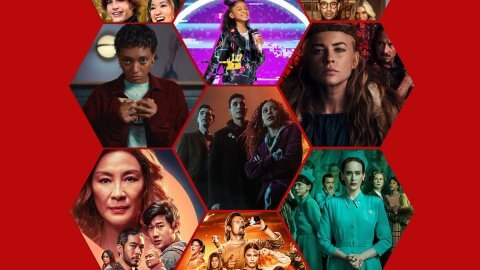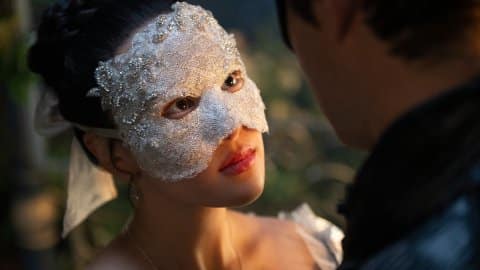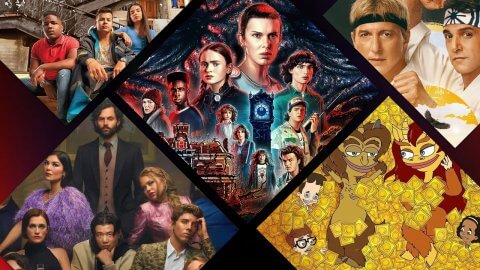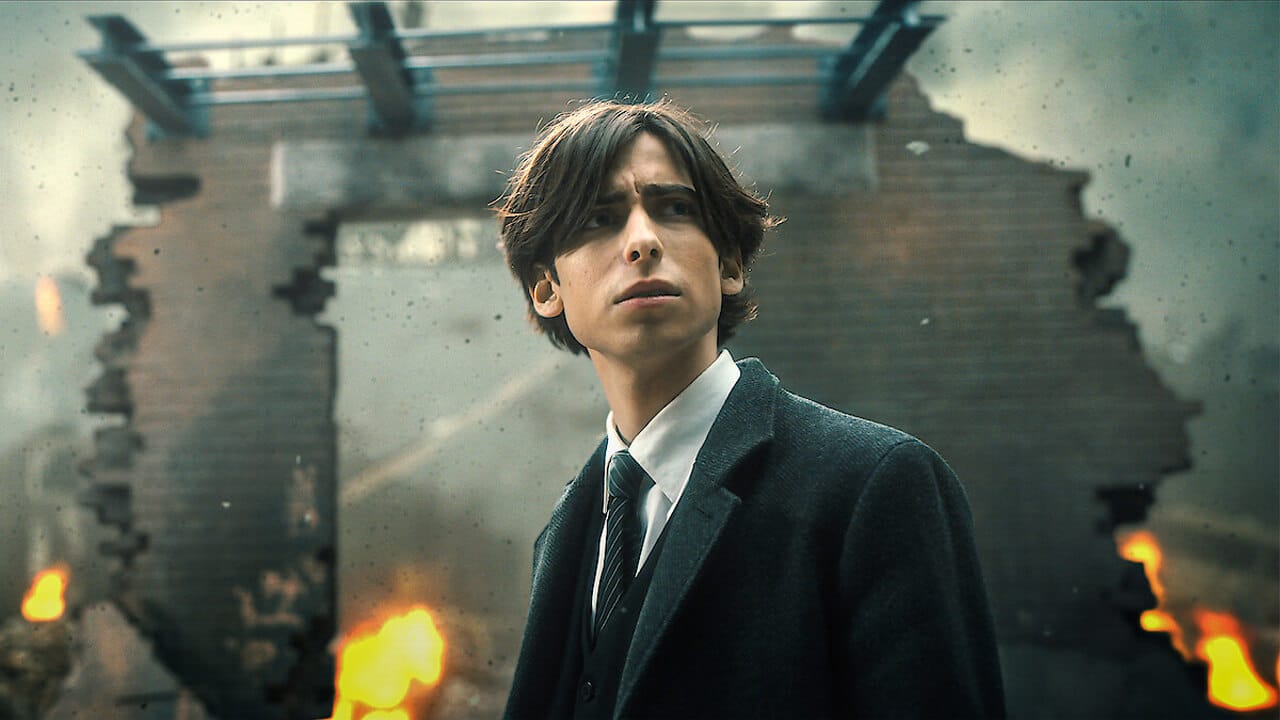
Picture: Aidan Gallagher as Five in The Umbrella Academy – Netflix
The final season of The Umbrella Academy has come and gone, and with it, we finally got to say goodbye to our favorite dysfunctional superpowered family. However, not everyone is impressed with how the final season of The Umbrella Academy ended, and we’re inclined to agree. Here’s why.
As far as superhero shows go, The Umbrella Academy was a fantastic new and quirky addition to an already saturated genre. Based on Gerard Way’s comic of the same name and created by Steven Blackman, the first season of The Umbrella Academy, released in 2019, was a big hit for Netflix.
The second season was a solid addition to the story. However, in the wake of the global pandemic, the third season saw a significant dip in quality and viewership, and the hope was season 4 would be an incredible end to the Hargreeves story. Suffice it to say the ending has split opinion, and plenty of fans are unhappy with how we said goodbye to The Umbrella Academy.
Below, we’ll discuss some of the issues we found with the final season and why it failed to impress audiences and critics.
Please note that we’re glad to hear from anyone who enjoyed the final season of The Umbrella Academy. But if you’ll humour us, below are some of the issues we found with it.
A (un)happy ending
Not every story needs a “happy” ending. However, after many of the trials and tribulations that the Hargreeves siblings and Lila had experienced, to have the series end with them sacrificing themselves leans heavily on the depressing side rather than bittersweet.
Sacrificing yourself to save the world is the most noble action any person could take. This makes it even more incredible that all eight sacrificed themselves for a world that continued to punch them repeatedly in the face. However, it’s hard not to feel like the Hargreeves, and Lila were nothing more than victims of Reginald’s obsession with bringing Abigail back to life and Abigail’s desire to be punished for her part in creating Marigold.
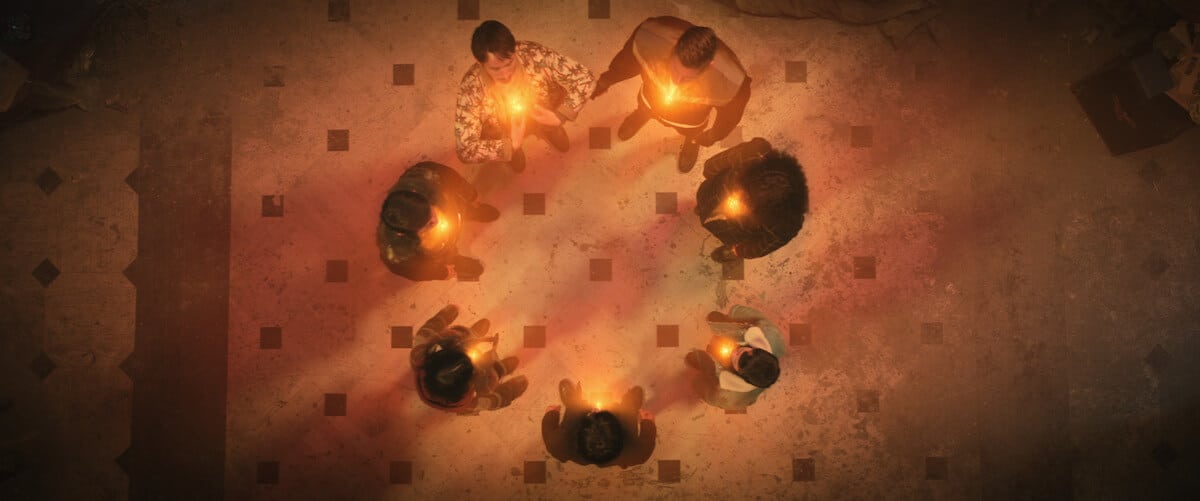
Picture: The Hargreeves prepare to sacrifice themselves – Netflix.
While the series didn’t need a picturesque “happy” ending, having all the Hargreeves children and Lila die to save the world was incredibly depressing. The Hargreeves were not “good” people, but they were not “bad” either; they were just flawed and complex individuals whose lives were influenced and ruined by their alien adoptive parents.
Besides saving the lives of Lila’s and Diego’s kids, her family, and Allison’s daughter, the Hargreeves’ sacrifice and impact on the world is on par with one of the worst tropes in fiction: “It was all just a dream.”
Plot Holes
The problem with time travel and traveling to different realities is you wind up with some plot holes.
The Problem with Marigold
Steve Blackman confirmed that the moment Marigold entered the bodies of the 43 women on Earth, the shattering of the timelines began. However, in the reset after Hotel Oblivion, all of Marigold was removed from the bodies of the Hargreeves, Lila, and, assumedly, the remaining thirty-five children (except for some of the already dead Sparrow Academy members).
First, 43 children would never have been born without Marigold, as the substance was the reason for their spontaneous births. The only reason why Allison’s siblings and Lila are alive is that she brokered a deal with Reginald to keep her family alive after the reset. However, in the reset world, he removed the Marigold from their bodies, so while they would never have been born in the “new world,” they are the remnants of reality that came before. But if Marigold is the be-all and end-all of why the world keeps ending, with Reginald removing it from their bodies, the fractured timelines should no longer exist (theoretically).
Selfish Abigail
Abigail is arguably the most selfish person in the entire series. She expresses that death was meant to be her penance for creating Marigold and, ultimately, Durango, and she’s angry at Reginald for resurrecting her. However, instead of communicating that to her husband and potentially taking her own life to continue her penance, she allows Marigold to be released into the world once more, which ultimately leads to “The Cleanse.” Talk about a toxic marriage.
“Right. So she feels that she did the ultimate sin and said to him that she felt he had no right to bring her back. She didn’t ask to be brought back. She believed she should have died for her sin. The original timeline broke [because] there was never supposed to be Marigold on Earth. And when the Marigold made its way from Hargreeves’ home planet along with him to Earth –– when it impregnated these women and they had these special children –– that began the shattering of the timeline. So from the moment Marigold was released and these children were born, the timelines start to shatter and we became millions of alternate timelines. And the only way to put them back together was for them to cease to exist.”
– Steve Blackman discussing Abigail and Marigold with TUDUM.
This may be a poor use of the analogy, but “If a tree falls in the forest and no one is there to hear it, did it make a sound?” Well, in this instance, if Marigold is safe in a jar and no one is using it, then world-ending events can’t take place—we think, anyway. So Abigail being the instigator behind “The Cleanse” makes no sense as it would never have happened without her influence in the first place. Her selfish need to pay penance for the creation of Marigold and Durango killed the entire world.
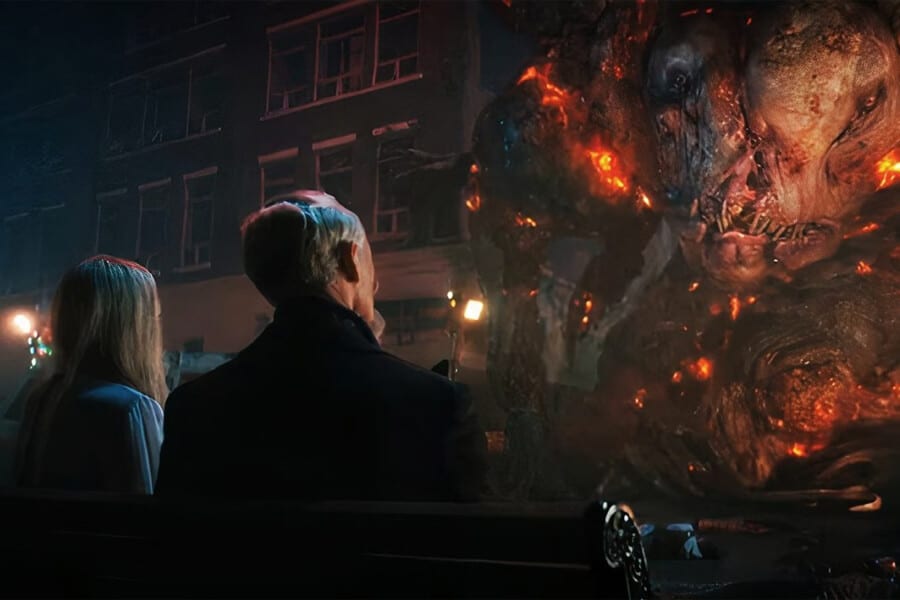
Picture: Abigail (left) and Reginald (right) moments from being consumed by The Cleanse – Netflix
The Jennifer Issue
At the end of the third season and after the world was reset, all of the Hargreeves siblings and Lila had Marigold removed from their bodies, which meant they no longer had powers. But if the reset world is based on Reginald’s design, why does Jennifer have Durango?
Even if we assume that Durango could not be removed from Jennifer, why would Reginald keep her alive? The first timeline, when Reginald killed Ben and Jennifer, proved that once Jennifer was dead, the Durango threat was eliminated. The existence of Marigold still brought about the apocalypse, but the reset was meant to eliminate that threat, too.
Unless Abigail had her part to play in keeping Jennifer alive, it would make little to no sense that Reginald would allow such a threat to live.
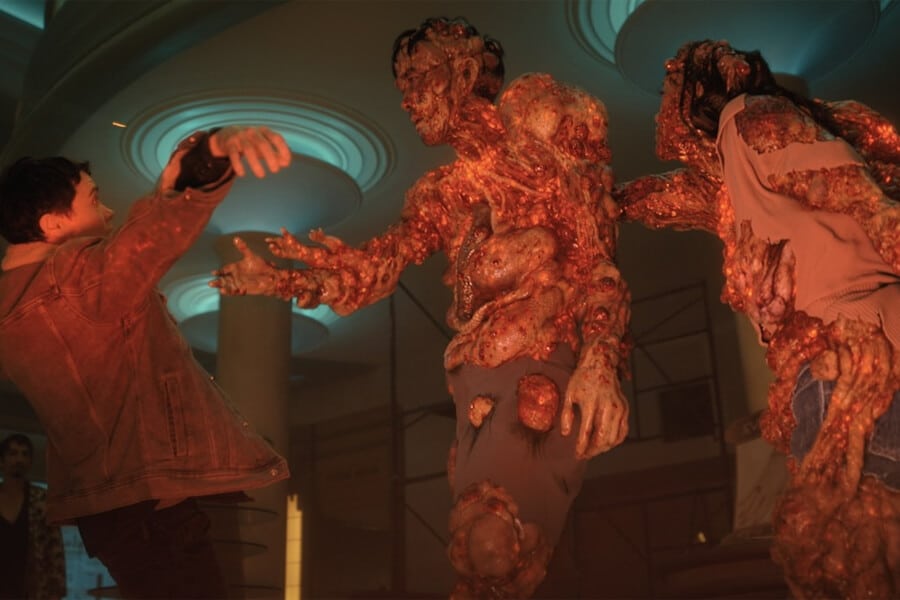
Picture: Ben and Jennifer moments before becoming The Cleanse Monster
Season 4 was the shortest yet
With only six episodes to its name, the fourth and final season of The Umbrella Academy was surprisingly short, especially considering that the previous three seasons all consisted of ten episodes.
- Season 1 – 10 episodes – 552 minutes / 9.2 Hours.
- Season 2 – 10 episodes – 473 minutes / 7.88 hours.
- Season 3 – 10 episodes – 485 minutes / 8.08 hours.
- Season 4 – 10 episodes – 337 minutes / 5.61 Hours.
Quantity does not always indicate quality, and unless this is the most incredible bait and switch in the history of Netflix, and a surprise part 2 lands later this year, then the final season was not long enough.
A Steep Decline
While Rotten Tomatoes is not the be-all and end-all of whether a television series or movie is good, it’s often one of the best indicators of how audiences and critics feel about them.
Here’s how critics and audiences rated all four seasons of The Umbrella Academy:
- Season 1 – 77% Tomatometer (94 reviews) / 85% Audience (2500+)
- Season 2 – 91% Tomatometer (89 reviews) / 88% Audience (1000+)
- Season 3 – 91% Tomatometer (58 reviews) / 55% Audience (1000+)
- Season 4 – 59% Tomatometer (32 reviews) / 17% Audience (500+)
Compared to the first and second seasons of The Umbrella Academy, season three saw a considerable decline in how well audiences received the series.
However, the fourth and final season saw the most significant drop-off, with the critics’ first rotten-rated score and a considerable decline in the audience score. The scores on Rotten Tomatoes for the fourth season suggest that the response we’ve seen online accurately reflects how fans feel.
Last Thoughts
While the Hargreeves didn’t get their swan song and happy ending, we have to remember that with the exception of the final few episodes, The Umbrella Academy is still a great series.
Watching the cast on and off screen, it’s evident that they embodied what it is to be a dysfunctional family. Their chemistry throughout was always enjoyable, and if there is one actor to watch out for in the future, it should be Aidan Gallagher, whose performance as Five never failed to impress.
A rushed and sad end to an otherwise excellent series, we say our goodbyes to the Hargreeves. Hello. Goodbye.
Did you enjoy the final season of The Umbrella Academy? Please let us know in the comments below if we’ve gotten anything wrong about how we thought the story ended.

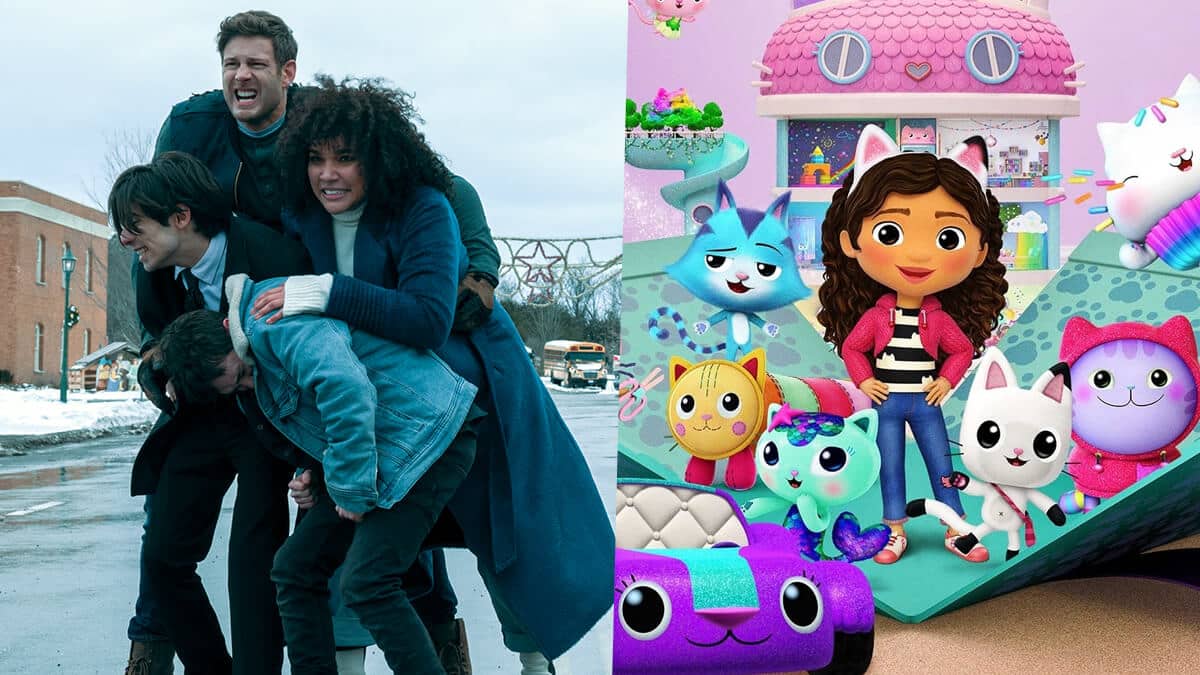
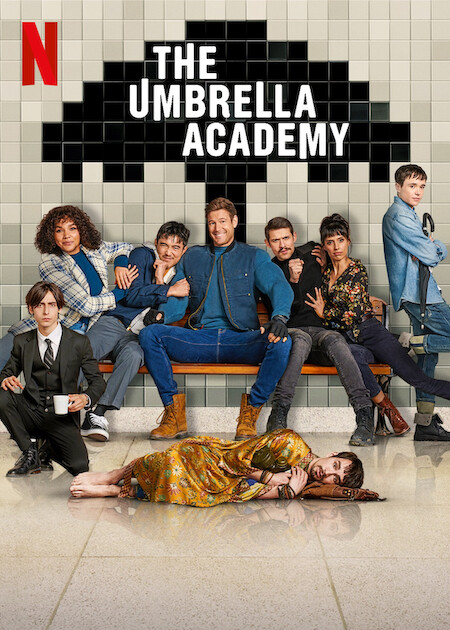 Rating: TV-14
Rating: TV-14